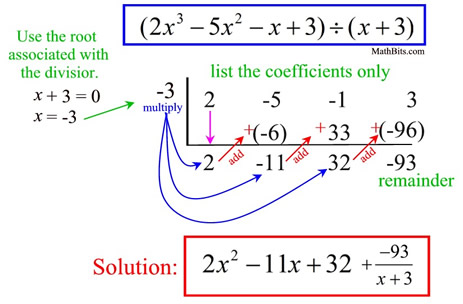Complex Numbers
Synthetic Division

Remainder Theorem
If a polynomial function f(x) is divided by (ax−b) then the remainder is f(ab)
Factor Theorem
If f(ab), then (ax−b) is a factor of f(x)
Sum and Product of Roots Quadratic
If p and q are roots of a quadratic equation ax2+bx+c then
p+q=−ab and pq=ac
Sum and Products of Roots Polynomials
anxn+aa−1xn−1+...+a1x+a0=0
the sum of the roots is −anaa−1
the products of roots is (−1)nana0
Cartesian Form
Form
z=a+bi
Conjugate
z∗=a−bi
zz∗=a2+b2
This is really important to recognize when you see the addition of two squares
Modulus Agreement Form
Modulus
modulus = ∣z∣=a2+b2
Agreement
agreement = θ=arctan(ab)
Polar Form
z=r(cosθ+isinθ)=r∗cis(θ)
Euler Form
cis(θ)=eiθ
Complex Roots
You can solve for complex roots when your determinate of a quadratic is negative answer
You can also solve knowing that a2+b2=(a+bi)(a−bi)
De Moivre's Theorem
De Moivre's: (r(cis(θ)))n=rn(cis(nθ))
You can solve the same thing using the binomial expansion of (cosθ+isinθ)n
Complex Roots of Number
The solutions of zn=w form a regular n-gon with vertices on a circle of radius ∣z∣ centered at the origin
Roots of Unity
the roots of unity are the solutions of zn=1
the roots are 1,cis(n2π),cis(n4π),...cis(n2(n−1)π)
